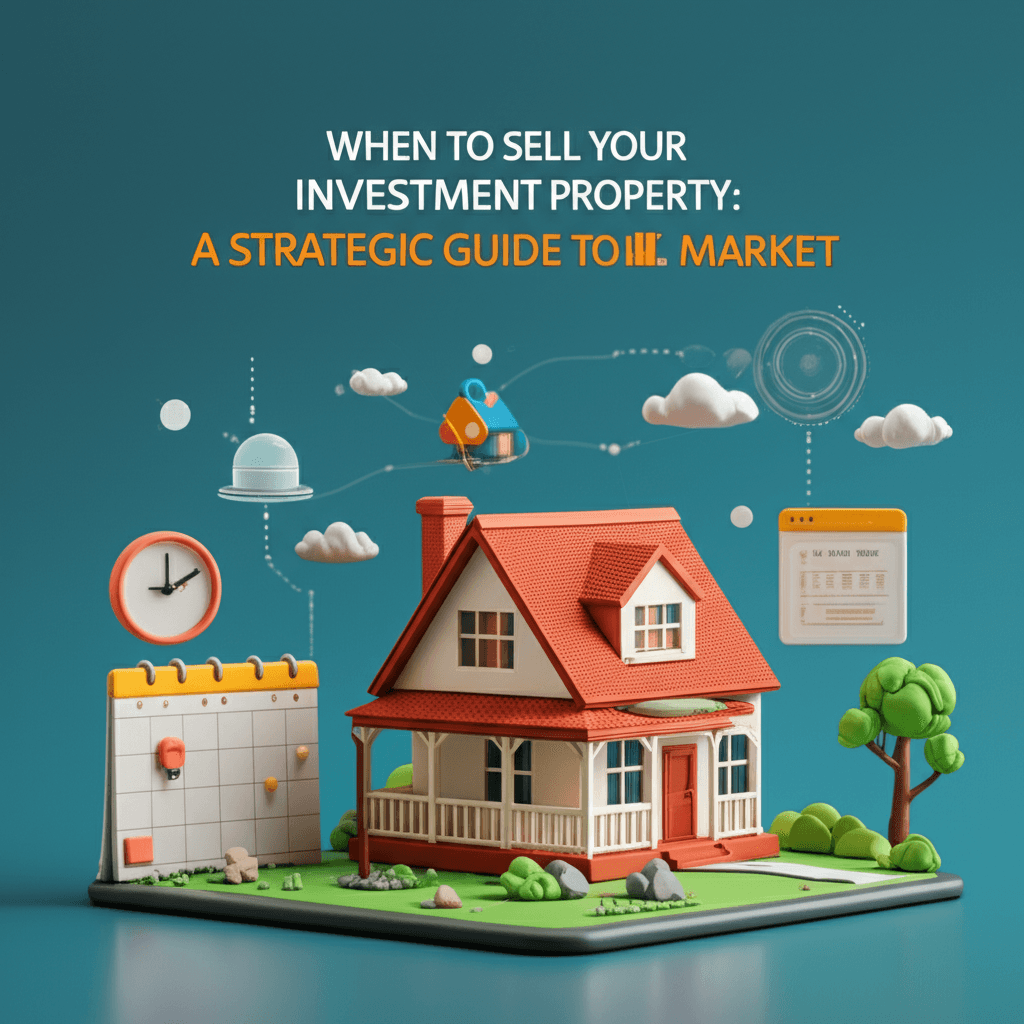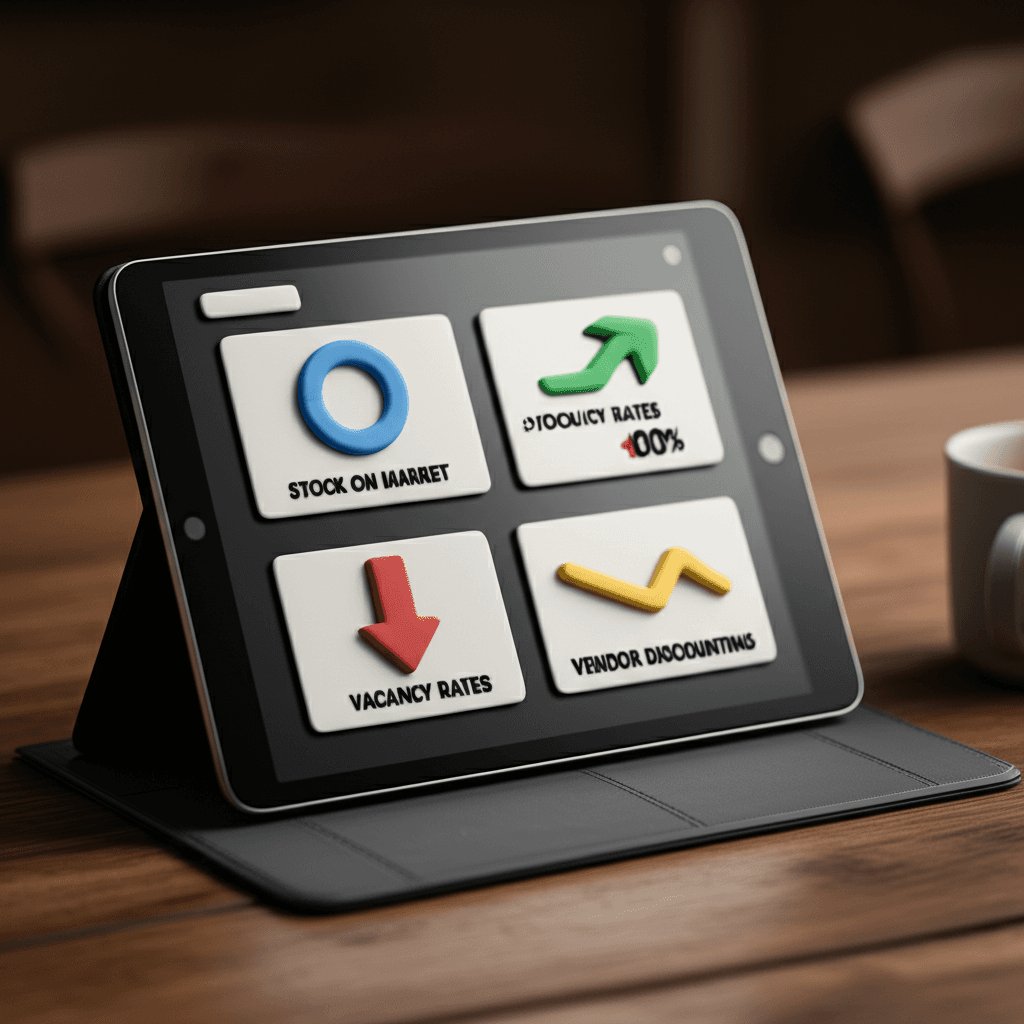When to Sell Your Investment Property: A Strategic Guide to Timing the Market
Learn how to use key data indicators to strategically exit a market, unlock capital, and accelerate your portfolio's growth.

Introduction
The golden rule of property investing has always been to 'buy and hold for the long term'. While this is sound advice, sophisticated investors know there's another powerful strategy: strategically selling to accelerate wealth creation. The question isn't just if you should sell, but when. Timing your exit from a market that has peaked allows you to realise profits and redeploy your capital into the next growth area—a concept known as increasing the 'velocity of money'. This guide breaks down the data-driven approach to knowing when it's time to cash in and move on.
Why Would You Sell a Profitable Property?
The most compelling reason to consider selling a high-performing asset is when you've hit a wall with your borrowing capacity. You might have significant equity locked away in properties that have seen huge gains, but if banks won't lend you more, your portfolio growth stagnates. Selling one of these assets can wipe out its associated debt, release substantial profit, and dramatically improve your borrowing power, giving you the fuel to purchase multiple new properties in markets poised for growth.
Start by Assembling Your Professional Team
Making a decision of this magnitude should never be based on a whim or advice from a Facebook group. The first step is to consult your team of experts.
Your Mortgage Broker: They can run the numbers to show you exactly how selling a specific property would impact your borrowing capacity. This is the crucial first piece of the puzzle.
Your Accountant: They will analyse the Capital Gains Tax (CGT) implications and help you strategise the best time of year to sell to minimise your tax burden.
Building a clear financial picture is essential before you even look at the market.
The Four Key Indicators That a Market Is Peaking
Timing the market perfectly is nearly impossible, but you can get very close by tracking the right data. When these four indicators start to shift, the market is likely approaching its peak. Savvy investors use platforms with advanced real estate analytics to monitor these trends.
1. Increasing Stock on Market: When the number of 'for sale' listings begins to rise steadily, it signals that supply is starting to outstrip demand. More choice for buyers means less competition and downward pressure on prices. 2. Rising Days on Market: Properties begin to take longer to sell. The fast-paced sales and multiple-offer scenarios that defined the boom period start to fade. 3. Growing Vendor Discounting: Sellers are forced to reduce their asking prices to secure a sale. This indicates that buyer affordability has been reached and the market's upward momentum is slowing. 4. Rising Vacancy Rates: As new supply from developments (duplexes, townhouses) comes online, it becomes harder to find tenants, and vacancy rates creep up. This is a strong signal that the supply-demand balance is tipping.

Avoiding Common Investor Traps
Many investors get timing wrong by falling for common psychological biases. One of the biggest mistakes is following the herd. By the time mainstream media and your Uber driver are talking about a property hotspot, the best growth is likely already over. Selling out of a slower market (like Melbourne recently) due to negative sentiment or buying into a hot market (like Perth) out of FOMO can lead to poor outcomes. Avoid making permanent financial decisions based on temporary emotions or market noise.
The Reinvestment Strategy: Unlocking Future Growth
Once you've sold a peaked asset, the goal is to reinvest those funds strategically. The capital you've unlocked from one sale could become the deposit for two or three new properties in carefully selected areas at the beginning of their growth cycle. This is how you multiply your asset base and accelerate your journey to financial freedom. Using an advanced search tool can help you identify suburbs that match your new strategy, filtering for everything from rental yield to lifestyle factors.

Conclusion
Selling an investment property isn't an admission of failure; it's a sophisticated strategy to keep your portfolio working its hardest. By moving from a 'buy and hold' mindset to a more active 'buy, hold, and trade' approach, you can take control of your growth trajectory. The key is to remove emotion from the equation, rely on your professional team, and use hard data to guide your decisions. The cost of inaction—leaving capital in a stagnant asset when you have no borrowing capacity—can be far greater than the costs of selling and rebuying.
Ready to identify the next high-growth market for your portfolio? Discover suburbs that match your precise investment criteria with HouseSeeker's powerful Real Estate Analytics tools and take your strategy to the next level.
Frequently Asked Questions
Is it a bad idea to sell a property that has doubled in value?
Not necessarily. If a property has already doubled, the chances of it doubling again in the short-to-medium term are low. If you've reached your borrowing limit, selling that property to unlock capital and buy multiple assets in new growth areas can be a very smart move to accelerate your portfolio's overall value.
What are the main costs to consider when selling and rebuying?
When you sell, you need to account for agent commissions and Capital Gains Tax (CGT) on your profit. When you buy, the main cost is stamp duty. However, you must weigh these transaction costs against the opportunity cost of having your money tied up in a market that has finished its growth cycle, which could cost you millions in lost potential gains over time.
How do I avoid buying at the peak of the next market?
The key is to use leading data indicators, not lagging ones. Don't buy in an area just because it's been in the news for its recent price growth. Instead, use tools like the HouseSeeker analytics platform to find markets showing early signs of growth, such as falling vacancy rates, decreasing stock on market, and tightening rental yields, before the boom begins.
